turks and caicos, a tourist haven, now leads the caribbean in homicides
gang violence, u.s. gun trafficking, and weak policing have pushed this small british territory to the top of the region’s homicide rankings.
Once known for luxury resorts and tranquil beaches, the Turks and Caicos Islands now top a far grimmer list. In 2024, they recorded Latin America and the Caribbean’s highest per capita homicide rate: 103.1 murders per 100,000 people. The figure surpasses even Jamaica and Haiti, long considered the region’s most violent countries.
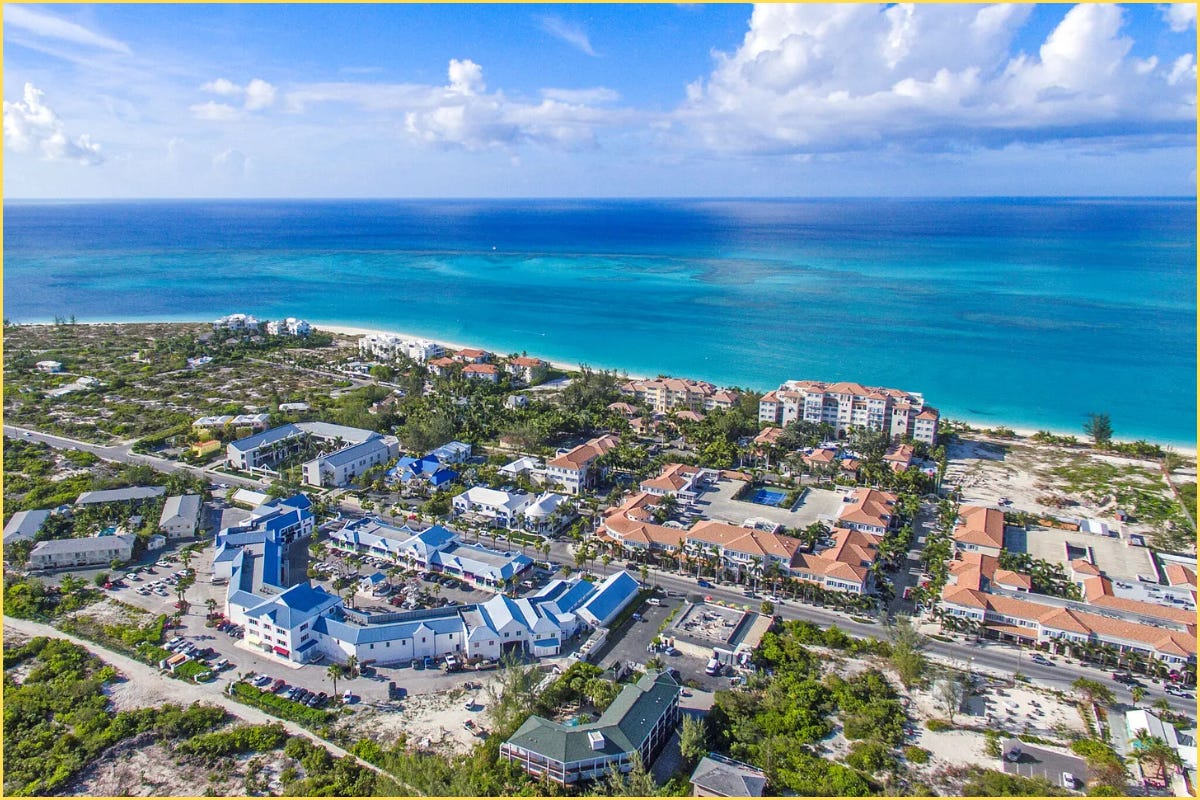
With a population under 50,000, per capita rates can spike easily. But officials and analysts agree: this surge is not a statistical outlier. It reflects a sustained and worsening crisis driven by organized crime, foreign weapons, and overstretched law enforcement.
a turf war on island time
Police estimate that 19 gangs operate across the territory, with around 220 active members, a number proportionally equivalent to several thousand in a midsize U.S. city.
What began as local crews dealing in small-time drugs and petty crime has evolved into organized networks vying for control over smuggling routes, trafficking narcotics, firearms, and even people. Turks and Caicos’ location between Haiti, the Dominican Republic, and the U.S. has made it a strategic stopover in regional trafficking corridors.
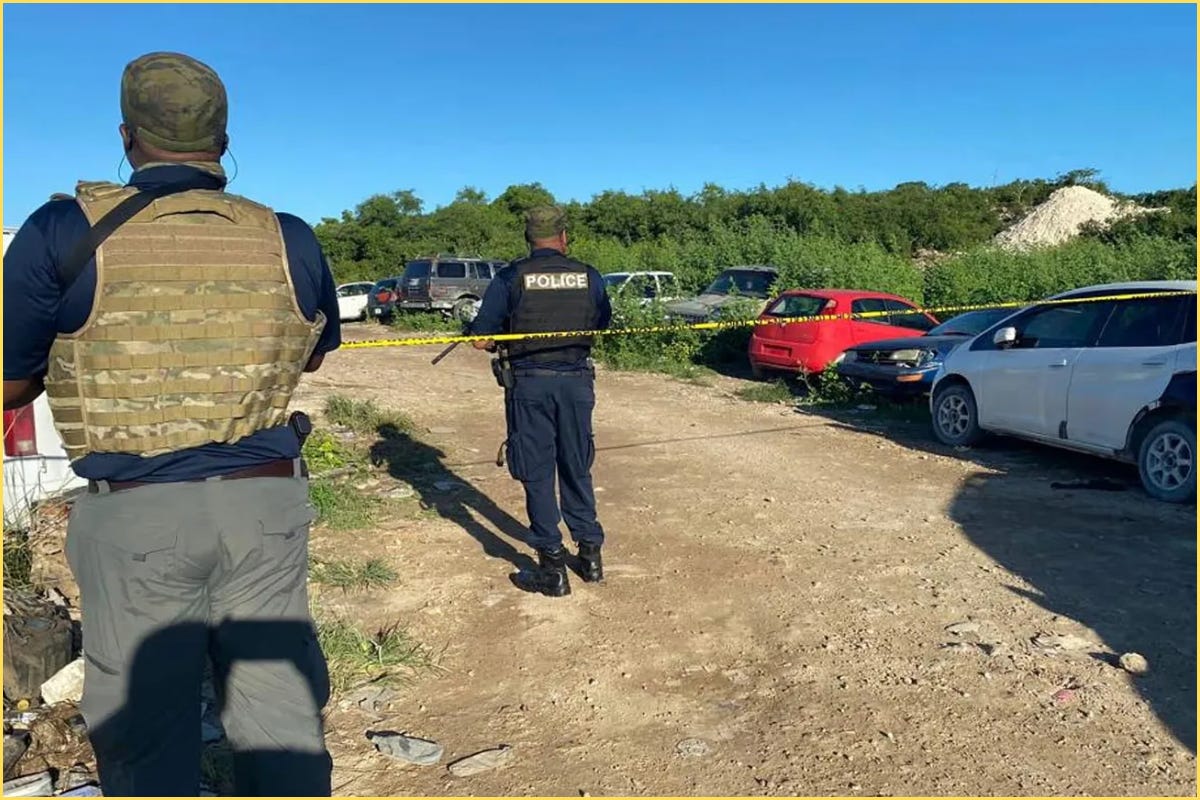
In 2022, Governor Nigel Dakin directly linked the violence to transnational actors, citing connections to Jamaican and Haitian gangs. Intelligence reports suggested that some groups were importing reinforcements from abroad. While 2024 data has not confirmed links to South Florida syndicates, the influence of outside criminal networks remains clear.
Most of the 50 killings last year weren’t random. Police say they were targeted assassinations, linked to turf wars, internal gang discipline, and acts of retaliation. These aren’t street-level arguments, they’re coordinated attacks to enforce control.
And in a territory this small, every killing sends shockwaves. Victims and perpetrators are often known in their communities. Witness intimidation is rampant. Arrests are rare. Trust in the justice system is fading.
u.s. guns, island wars
Despite strict local firearm laws, the islands are awash in weapons, most smuggled in from the United States. Police say the guns typically arrive by boat from Florida, hidden in cargo or tucked into private vessels. Seized shipments have included pistols, assault-style rifles, and high-capacity magazines, gear far beyond anything legally sold in the territory.
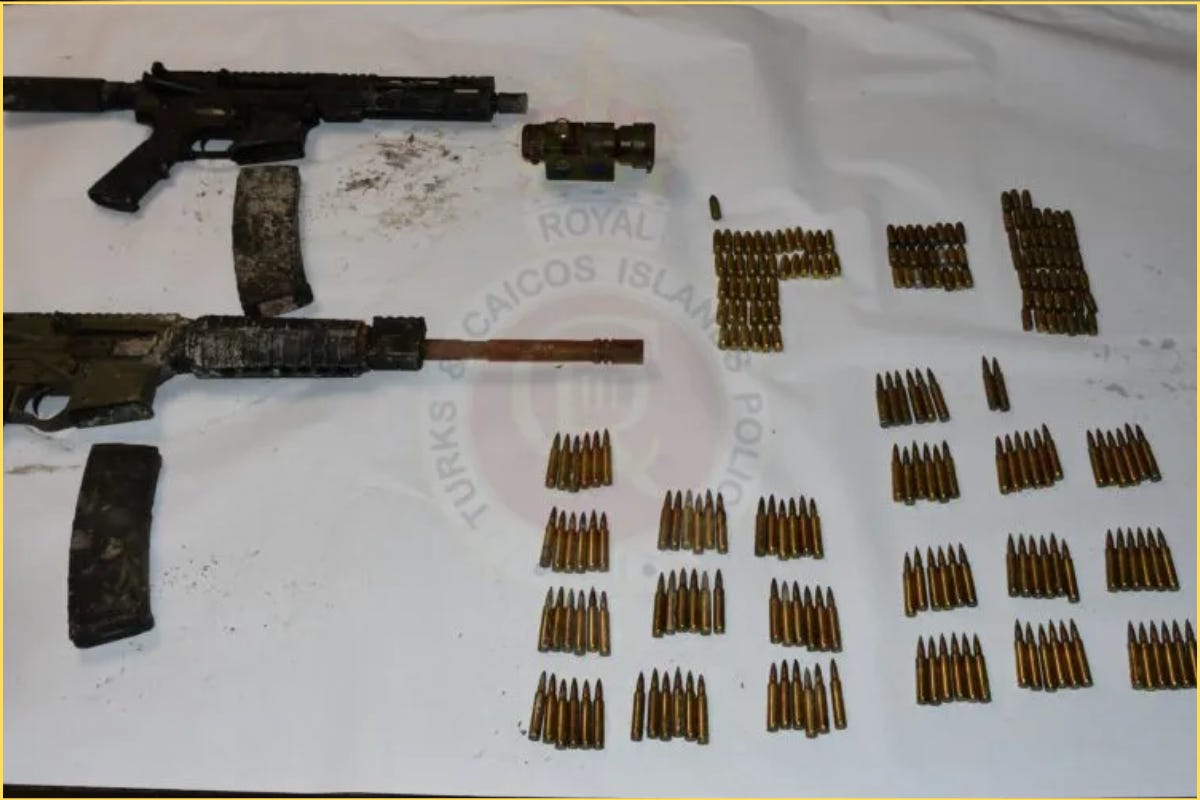
A 2024 U.S. Government Accountability Office report found that 73% of firearms recovered across the Caribbean between 2018 and 2022 came from the United States, with Florida a key source. Homeland Security officials have noted not only rising volume but increasing firepower.
Turks and Caicos is especially vulnerable: no military, no coast guard, and limited port inspection. A single container of weapons can fuel multiple gangs, tipping the scales in turf battles or internal coups.
Caribbean leaders have repeatedly called out the U.S. for lax export controls. But the flow continues and so does the violence.
understaffed police, uneven oversight
The Royal Turks and Caicos Islands Police Force is small, under-resourced, and stretched thin across 40 islands and cays. Most officers are based on Providenciales, leaving many outlying areas unprotected.
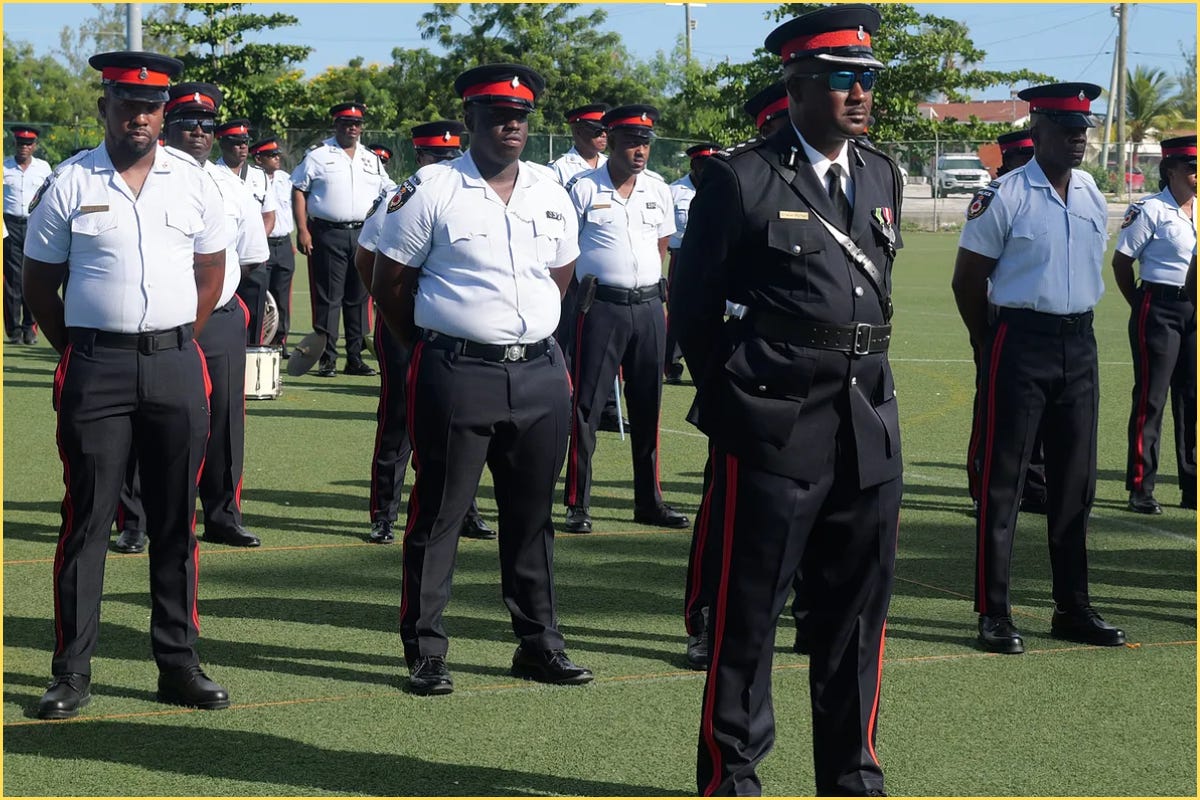
As a British Overseas Territory, defense formally falls under the U.K. but in practice, support is limited to budget top-ups and bureaucratic oversight. There are no rapid deployments, no boots on the ground. Just memos.
The U.S. offers intermittent assistance. Local leaders have called for more intelligence sharing, better equipment, and sustained funding. But so far, both London and Washington have been slow to respond.

regional chaos, local fallout
The jump in homicides, from 13 in 2021 to 48 in 2024, reflects more than local feuds. The wider region is in flux.
Haiti’s collapse has sent ripples across the Caribbean. Armed groups now control much of Port-au-Prince. Some gang members have fled to safer, smaller territories, including Turks and Caicos. Police have arrested Haitian nationals with suspected ties to violent networks, some arriving by boat or operating through diaspora links.
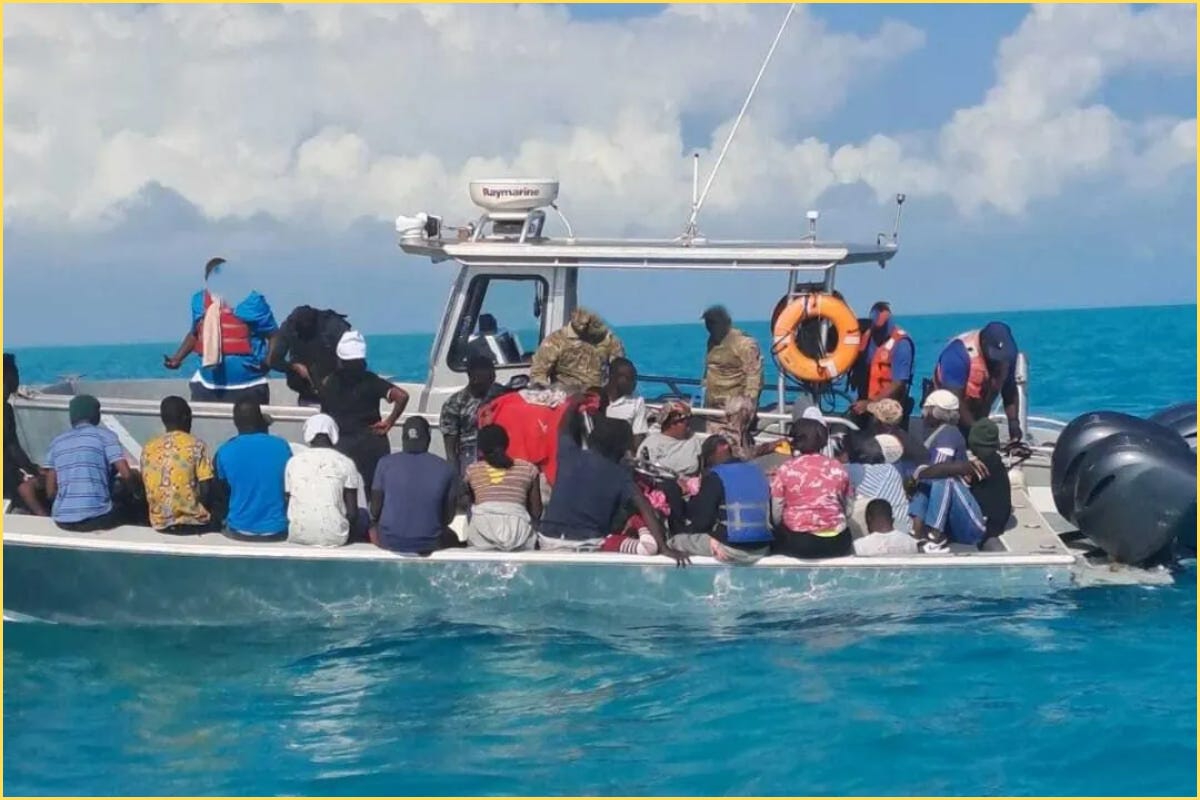
The islands also share a regional economic vulnerability. Caribbean youth unemployment averaged 18.1% in 2023, down from pandemic highs, but still significant. Turks and Caicos is wealthier than most neighbors, but jobs are concentrated in tourism and construction. For many young men, gangs offer more than income: they offer identity, hierarchy, and belonging.
Public services are thin. Schools and training programs exist but are underfunded and unevenly distributed. In many neighborhoods, gangs have become informal institutions, offering structure and enforcing rules by force.
A regional study on youth violence found that poverty, family breakdown, and low educational attainment were key drivers of gang recruitment. Turks and Caicos fits the pattern. And its size magnifies the stakes. Few options, few exits, and high costs for the whole community.
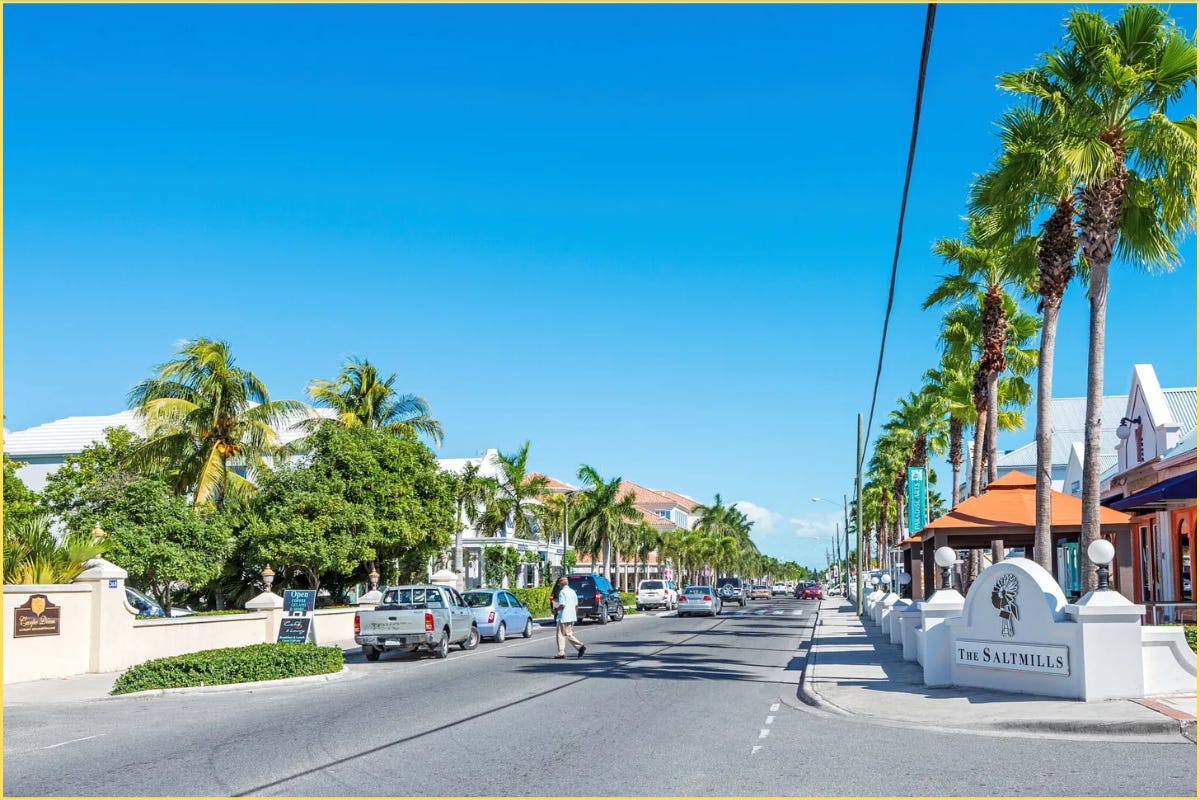
Officials acknowledge that policing alone isn’t enough. Without investment in education, housing, and jobs, the root causes of gang violence are likely to deepen.
paradise with a warning label
In early 2025, the U.S. State Department raised its travel advisory for Turks and Caicos to Level 2, warning of rising violent crime on Providenciales.
The move followed the killing of Shamone Duncan, a 50-year-old sheriff’s deputy from Illinois, who was shot during her sister’s birthday celebration near Grace Bay. One other person died in what police say was a targeted gang hit that struck bystanders.

Tourism remains steady for now. Flights are full. Resorts are busy. But hotel staff say guests are asking more questions. Some properties have hired private security.
The risks are more than reputational. Tourism accounts for over 80% of GDP. The islands' economy depends on projecting peace, exclusivity, and escape. That image is cracking.
the hard road beyond tourism
The government has long acknowledged the fragility of a one-industry economy. It’s now pushing to diversify, developing financial services, agriculture, and renewables. Officials also hope to promote ecotourism and wellness tourism, particularly on underdeveloped islands like South Caicos, to reduce overreliance on Providenciales.
There’s also growing awareness of the social cost of inequality. In recent years, authorities have launched vocational training programs and small business grants for youth, often in partnership with CARICOM and foreign donors. Technical education is expanding in public schools.
But reach remains limited. Most initiatives are centered on Providenciales. And they struggle to compete with the fast money and status gangs offer.
Without stronger institutions and sustained investment in people, the risks will persist. The violence gripping Turks and Caicos is no longer a ripple. It’s a warning.
your take?
footnotes/sources
Insight Crime, InSight Crime’s 2024 Homicide Round-Up, 2025
The Sun TCI, 19 gangs with about 220 members operating in TCI, police say, 2024
The Guardian, Turks and Caicos engulfed by gang warfare, says Foreign Office report, 2023
The Sun TCI, Police force reports surge in gang-related crimes among young males, 2025
PBS, Smuggled guns from the U.S. are blamed for a surge in killings on more Caribbean islands, 2024
Loop News, Gang violence surge in Turks and Caicos related to transnational crime, 2024
International Labor Organization, Global Employment Trends for Youth 2024, 2024
Caribbean Development Bank, Caribbean Economic Review and Outlook 2024 - 2025, 2025
International Initiative for Impact Evaluation, Factors associated with youth gang membership in low and middle-income countries: a systematic review, 2018
The Sun TCI, Gangsters and criminals fleeing Haiti arrested in Turks and Caicos Islands, 2024
Travel + Leisure, This Popular Caribbean Island Just Got an Updated U.S. Travel Advisory—Here's What It Means for Travelers, 2025
CBS News, Cook County Sheriff's deputy slain in Turks and Caicos remembered as "a joyous person", 2025
CEPAL, Summary of the Caribbean Youth Dialogues, 2025
Mondaq, Creating New Revenue Streams In The Turks And Caicos Economy, 2023
Invest TCI, Invest TCI Drives Sustainable Growth for MSMEs, 2024
The Sun TCI, PDM Leader Edwin Astwood urges immediate government action amid U.S. tariffs, 2025
Stop US Arms to Mexico, No Shelter from the Storm: Update on Iron River of Guns, 2024


